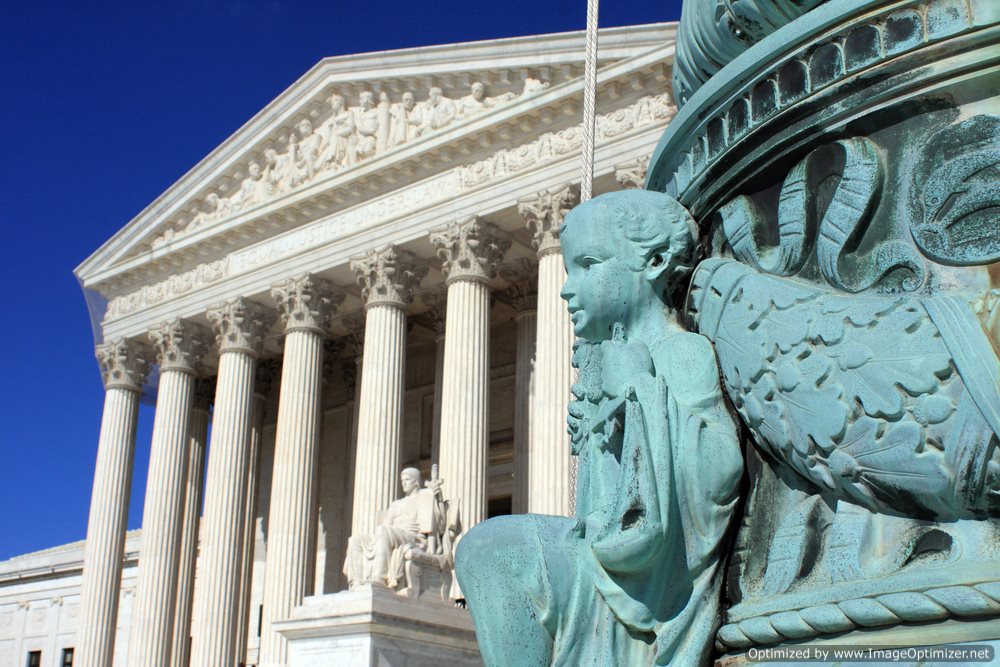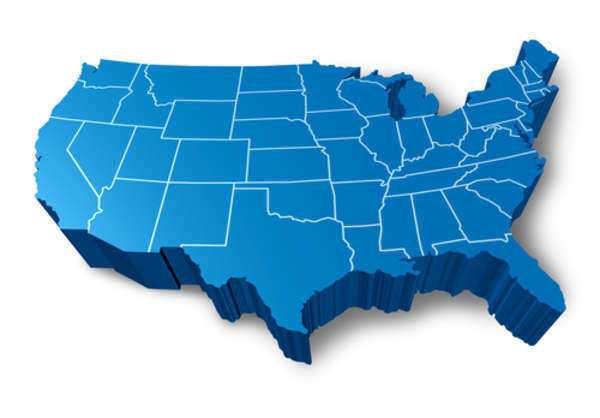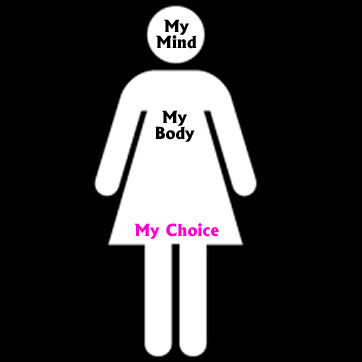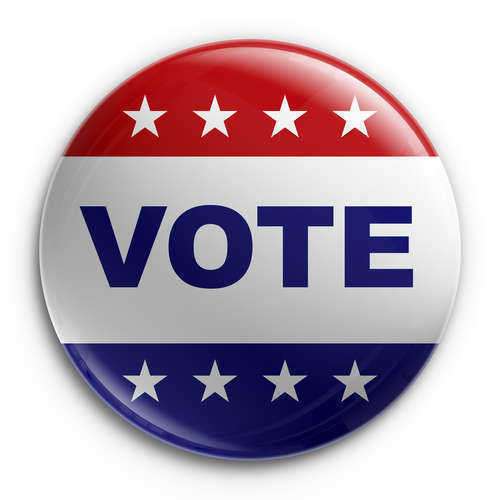Deeply Divided: Supreme Court Hears Both Sides on Landmark Same-Sex Marriage Case




On November 13, 2012, the Justice Department announced that it filed a civil rights lawsuit against the city of San Jacinto in California for violating the Fair Housing Act and Americans with Disabilities Act. The lawsuit was filed for the city’s treatment of group homes for disabled persons.
According to the complaint, the city has made it extremely difficult for group homes of people with disabilities to remain and operate in the city. The zoning codes currently state groups homes that are not required licensing from the state—and even some licensed homes—are not allowed zoning in the city.
The complaint also alleges that the city targeted housing for people with disabilities during a sweep in November of 2008. During the sweep, armed officers and deputies in uniform showed up to multiple residences, interrogated the residents with disabilities, and made them fill out a questionnaire intended for people with mental disabilities.
The lawsuit occurred after the Department of Housing and Urban Development (HUD) received a large number of complaints from operators of group homes around the city. The Justice Department is asking the court to make the city stop enforcing the discriminatory laws and make reasonable accommodations for all group homes. The Justice Department is also seeking monetary damages for victims of the civil rights violations.
Thomas E. Perez, Assistant Attorney General for the Civil Rights Division, stated, “No person should be denied an equal opportunity for housing in his or her community, or suffer harassment or intimidation, because he or she is a person with a disability. The Justice Department is committed to preventing discriminatory treatment of people with disabilities.”
André Birotte, Jr., the U.S. Attorney for the Central district of California, stated, “This suit is part of my office’s continuing efforts, in partnership with DOJ’s Civil Rights Division, to ensure that all residents of the Central District are accorded the rights to which there are entitled under the law.”
Source: U.S. Department of Justice




Same-sex marriage in France is now one step closer to legality, as lawmakers in the lower house of parliament approved a bill that extends the right to adopt and marry to same-sex couples.
The initiative secured approval in the National Assembly by a vote of 329 to 229 and 10 abstains. Before it can be placed into law, the bill must still go before the Senate; if passed, it would formally mark the most critical advancement for French gay rights advocates in more than 10 years.
France is not the only nation debating the polarizing issue of gay marriage, as UK lawmakers also took a big step last week toward legalizing the measure when they appropriated the second reading of a bill in the House of Commons.
While a significant number of Parliament members backed the legislation, which is backed by Prime Minister David Cameron, the push has prompted widespread controversy and rebellion within Cameron’s conservative party. The bill in the United Kingdom must go through several more stages before it can officially be made into a law. The Church of England, and other religious institutions, are among the organizations vehemently opposed to UK legislation.
Extending the right to adopt and marry to homosexual couples in France was one of President Hollande’s electoral pledges during his campaign efforts last year.
France’s National Assembly, which is dominated by Hollande’s Socialist Party, approved the most critical article of law with an overwhelming majority earlier this month. The left, which also controls the majority of the Senate, faces stiff opposition from social conservatives and the Roman Catholic Church as huge numbers routinely turn out for protest marches in the nation’s capital of Paris.
The archbishop of Paris, Cardinal Andre Vingt-Trois, claims that offering marriage and adoption to same-sex couples would be viewed as a transformation of marriage that would impact everyone. The bishop went onto say that failing to recognize gender difference within the union of marriage would be a deceit that would damage the foundations of society and lead to widespread acts of discrimination.
That said, the legislation has secured wide backing from gay rights advocates, including from the French, gay, lesbian and transgender organization Inter-LGBT who claims that legislation would be a significant step forward for France in terms of equality of rights.
A law legalizing civil unions in France was passed in 1999 under a previous Socialist government. Known in the nation as PACS, the civil union agreement may be entered into by straight or homosexual couples and offers many but not all of the rights of a traditional marriage.

Austin, TX—A lone Texas legislator held an 11 hour solo filibuster on Tuesday night, in a successful attempt to stop the state from passing one of the nation's most restrictive anti-abortion laws.
According to Texas state law, the bill was required to pass by midnight on June 26 in order to go to Governor Rick Perry's office for a signature. The new law would have required all abortion clinics to meet a series of onerous requirements, which pro-choice advocates in the state say would have made it difficult for any clinic in the state to remain open. It would also have implemented a blanket ban on all abortions performed at more than 20 weeks' gestation. Perry, an abortion opponent, was expected to sign the bill.
Texas Senator Wendy Davis, D-Fort Worth, faced an uphill battle when it came to filibustering the bill. While Americans may be more used to federal filibusters, which allow U.S. Senators to talk about nearly anything—even just to read the phone book—Texas has substantially stricter rules when it comes to the filibuster.
While Texas senators are allowed to have the floor to speak for an unlimited amount of time, they are subject to a “three strikes” policy. If they go off-topic three times, they are required to sit down. Unlike their counterparts in Washington, state senators in Texas are not allowed to eat or drink during the filibuster process.
After 11 hours, Davis had used her three strikes: two by discussing topics that the legislature decided were not relevant to the abortion bill, and once by having another legislator assist her in putting on a back brace. According to the strict Texas filibuster rules, sitting down or leaning on the podium during a filibuster allows the filibuster to come to an end.
When Republicans issued the third strike to Davis, they were able to make a vote on whether to end her filibuster. However, several of Davis's fellow Democrats assisted by asking questions relating to parliamentary procedure, making several motions that delayed the vote for an additional two hours.
By the time the bill was up for vote, midnight had nearly arrived. During the course of the vote, spectators at the legislature began what has become known as the “people's filibuster,” vocally disrupting the legislators in order to gain a few crucial minutes.
While the legislature initially declared that the bill had passed, subsequent examination revealed that it had in fact been passed after the midnight deadline, rendering it dead. While the victory caused an outpouring of support for Wendy Davis, the celebration was short-lived: Rick Perry has announced that he intends to hold an additional special session of the legislature in order to pass the abortion restrictions.

On November 30, 2012, the US Attorney’s Office for the Western District of Texas announced that Bartolo Sanchez, the mayor of Toyah, Texas, was arrested for fraud and identity theft charges. He is suspected of stealing $300,000 from the city through fraudulent mileage reimbursement claims and personal expenditures while using the city’s funds.
Toyah is located about 22 miles west of Pecos, Texas. The city covers about 1.6 square miles and has a population of about 100. According to court documents, Sanchez entered into a settlement agreement with Chesapeake Operating Inc without knowledge of the Toyah City Council. The company gave Sanchez $228,132.54 for surface damages caused by Chesapeake vehicles, but Sanchez placed the money in a Toyah bank account he formed.
Sanchez is also suspected of writing checks to himself from city accounts because he had signatory authority on all city bank accounts. The checks were mainly written for false mileage reimbursement claims, but other checks had nothing to do with city business.
Sanchez forged a second signature required on all checks issued to himself.
Sanchez is charged with one count of bank fraud, one count of wire fraud, and four counts of aggravated identity theft. He faces up to 30 years in prison for bank fraud, up to 20 years in prison on the wire fraud charge, and a mandatory two years in prison for each aggravated identity theft charge.
Sanchez is assumed innocent until proven guilty.
The case was investigated by the FBI. Assistant United States Attorney Austin Berry is prosecuting the case for the government.
Sanchez’s charges and crimes were announced by United States Attorney Robert Pitman and FBI Special Agent in Charge Mark Morgan.
Source: Federal Bureau of Investigation

Summary of Electoral System of Australia
Many regard the electoral system of Australia as one of the best voting systems in the entire world. The voting system is often required under law, and preferential voting elects the candidate with the most votes, regardless of jurisdiction.
Compulsory Voting
Voting for federal, state, and territory legislatures is required under Australia law. Voting in municipalities is often required as well. During the most recent federal election, about 95 percent of the population voted. Only 5 percent of the population left a ballot blank or failed to properly fill out the ballot.
If a citizen of Australia fails to vote, they are subject to a $20 fine. Prosecution is allowable under Australian law, but prosecution does not usually occur.
Preferential Voting
Preferential voting is used in federal, state parliament, and municipal elections throughout Australia. The electoral system of Australia is also used in political party elections, trade unions, churches, company boards, volunteer organizations, and sports clubs. There are two types of preferential voting used in Australia: ‘full’ preferential voting and ‘optional’ preferential voting.
In full preferential voting, all of the number-one votes are counted for each candidate. The election goes to the candidate with the majority of the vote (51%). If none of the candidates have a majority, the candidate with the least votes is excluded right away. The votes for the excluded candidate then go to the second preference of the voter as described on the ballots. The process continues until a candidate has over half of the total votes.
Full preferential voting is used for the federal House of Representatives and the following lower houses: Victoria, South Australia, Western Australia, and the Northern Territory. Optional preferential voting is used in the lower houses of New South Wales and Queensland.
Determination of Parliamentary Seats in Australia
The majority of parliamentary seats are determined by proportional representation in Australia. Proportional representation lets the party’s percentage of overall votes determine the number of seats—40% of the vote ensures 40% of the seats. There are two variants used in Australia as well, which include the ‘Senate’ model and the Hare-Clark system.
The Senate model makes it easier for a minor party and independent to win seats. The system makes it hard for a major party to control the Senate and throughout the following upper houses: New South Wales, Victoria, South Australia, and Western Australia.
The Hare-Clark system lets party members fight for seats as often as compared to fighting for seats against an outside opponent. This system lets minority governments operates more than compared with preferential voting. This system is used for the Tasmanian House of Assembly and the Australian Capital Territory Legislative Assembly.
Electoral System of Australia: The Breakdown
Commonwealth House of Representatives: preferential, full allocation
Commonwealth Senate: proportional representation, Senate model
New South Wales Legislative Assembly: preferential, optional allocation
New South Wales Legislative Council: proportional representation
Victoria Legislative Assembly: preferential, full allocation
Victoria Legislative Council: proportional representation, Senate model
Queensland Legislative Assembly: preferential, optional allocation
Western Australia Legislative Assembly: preferential voting, full allocation
Western Australia Legislative Council: proportional, Senate model
South Australia House of Assembly: preferential, full allocation
South Australia Legislative Council: proportional, Senate model
Tasmania House of Assembly: proportional, Hare-Clark model
Tasmania Legislative Council: preferential voting, partial allocation
Northern Territory Legislative Assembly: proportional, full allocation
Australian Capital Territory: proportional, Hare-Clark model
Source: https://www.dfat.gov.au/facts/electoral_system.html